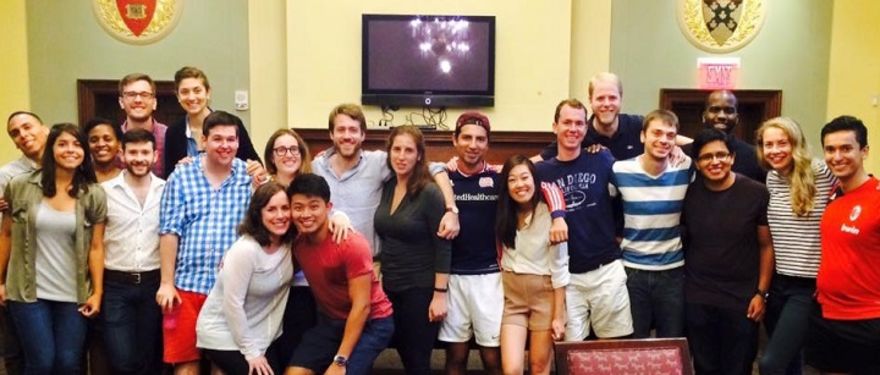I often get asked if I could choose between the Kennedy School and Business School, which one would I choose? I often respond, “You are asking a parent to point out their favorite child.” Although my friends laugh it off, I really think that the MPA-ID and the MBA are complementary to each other, honing different and yet comparably important skills for business and policy global leaders.
Born and raised in Kampala, Uganda, I was probably predisposed to develop passions contiguous to the phenomenon of development, which arguably has different connotations depending on its use. For many, it is often referred to in the form of a career pursuit, but for me it is, and has been a way of life. I have lived to see Uganda’s economy transform over the years, with every trip home a constant reminder of how quickly things are changing. I frequently have to reorient myself to the city, lost amidst the new highways, buildings and malls on one side, contrasted against the slums and street vendors on the other.
I came to the MPA-ID program at the Kennedy School hoping to wrap my head around some specific policy questions: How do you design analytically rigorous development policies that are actually politically and administratively palatable and therefore implementable? How do you ensure that the benefits of high growth rates (like those we are currently seeing in the East African region) truly trickle down, creating a self-sufficient middle class and ultimately a consumption driven economy? How do you design and implement policies that address long term economic sustainability vis à vis short term growth spurts? At the same time, I had big unanswered questions that were equally unsettling: How can Africa compete on the global landscape? How are Africans going to forge ahead creating homegrown solutions without re-inventing the wheel?
One and a half years later, many of these questions remain unanswered - but through the MPA-ID, I have developed a skill set that enables me to use evidence-based tools to analyze such questions and many others. More importantly, the MPA-ID has given me a tightly knit group of friends that is passionate about these issues, and is committed to sharing, exploring, and innovating together.
With the bar set high in my first year, I chose to enter the MBA with as open a mind as I did when I walked into my first MPA-ID classroom. The case method sat on the opposite side of the pedagogical spectrum that I had experienced in my academic life, and I really didn’t know what to expect. My first year had provided a comfortable landing with the joint degree cohort, where I had found friends with whom I was going to start my second year. This time I was particularly curious about a different set of issues: How can you use business as an agent for change in developing economies? How do you transform a local business to become a global player? And more fundamentally, how do you even start a business, and what are the key aspects an entrepreneur should think about holistically?
HBS truly exceeded my expectations, and this is when the parent child reference became well suited. I was pleasantly surprised by how much I enjoyed the case method; putting oneself in a protagonist’s shoes and really thinking about what you would do with the limited data and resources available to you is a very powerful learning mechanism.
After I’d take a stance in class, I’d nervously wait to find out whether I was right or wrong, but quickly realized that if I were always going to be right, then why would I be here? Listening to my peers and friends not only take a stance but make a compelling argument for their position sometimes led me to change my mind, and other times only reaffirmed my initial position. The key was that I was open to being challenged, to being wrong, and to truly allowing my priors to be changed by compelling debate.
Even more surprising has been my own journey of self-discovery. It’s rare that you spend three or four months probing what kind of leader you are, thinking about where you want to get, and how you can get there. One of my fondest memories this semester is from a class when we projected our lives in 10 years. Initially counterintuitive, I realized that it is a true embodiment of how HBS is pushing us to live our lives with intentionality, actively thinking about making choices that nudge us one step closer to our ultimate career and personal goals.
To crown it all: when I need a balanced perspective between a business driven and policy driven approach, I turn to the 25 joint degree students in my cohort and indulge in intellectual debate on our most current itch. Granted, we often spiral into whether HBS should do more to address the policy implications of business decisions or whether HKS should do more on how businesses can execute on policy, only to remind ourselves that this is why the joint degree exists. I am privileged to belong to a truly unique cohort, nurturing leaders that are able to tackle challenges at the intersection.

